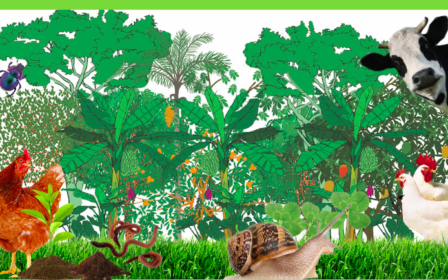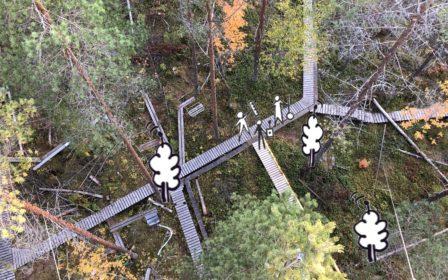🗓 August 19th – September 27th, 2022
This year, the CreaTures made generous offerings to the Participatory Design Conference, many of which got accepted 😌. Below is a brief overview of our contributions, with links to open-access papers and presentations:
🍄 Following Seals and Dogs: Experimenting with Personal Dimensions of Transformative Design 🐕💨
Exploratory paper by Kirsi Hakio, Markéta Dolejšová, Tuuli Mattelmäki, Jaz Hee-Jeong Choi, Cristina Ampatzidou | 📅 Online, 25th August 2022
Present eco-social crises call for transformative design practices, which include personal dimensions of transformation and self-reflection. This paper builds on ongoing discussions in participatory design about personal transformation and its impact on broader societal change. The paper presents two reflective accounts of transformative encounters with creative practices, to explore how to better understand and nurture personal transformations in participatory design. The common themes emerging from these accounts point to the importance of noticing small events that might seem subtle or mundane at first, but upon reflection, become critical in contributing to personal transformation. The paper argues that the personal dimension of transformative design plays an important role in fostering eco-social change and that self-transformation can be nurtured by creating space for spontaneity, letting-go, shifting of perspectives and trusting emerging elements that unfold beyond our control as designers.
View the full paper here.
🍄 Open Forest: Data, Stories, and Walking-With 🐺🌲
Situated action by Markéta Dolejšová, Andrea Botero, Jaz Hee-Jeong Choi, Cristina Ampatzidou | 📅 Newcastle, hybrid, 30th August 2022
Open Forest is a collective, experimental inquiry into different forests and more-than-human dataflows. The project explores how forests and forest data can be produced, thought of and engaged with otherwise, in co-creative ways that consider perspectives of diverse forest creatures and reach beyond techno-solutionist perspectives. In Newcastle we will take an experimental, hybrid walk in the Ouseburn area followed by a co-creation of forest stories, following on our previous walks in other forests around the world. Through these engagements, we hope to entangle the existing, mostly quantitative forest datasets with more messy, abstract data to question the currently available understandings about the forest as a resource to be used.
Full paper is available here.
🍄On Participative Intimacies and Other Invisible Achievements 🌟
Keynote by Ann Light | 📅 Newcastle, hybrid, 1st September
Participatory design is subtle, with a focus on process and an intrinsic collaborative orientation that leaves traces only in the quality of its outcomes. While civilizations are judged on their rich architectures and artifacts, structures for negotiation and co-creation may be entirely invisible. Yet our work hinges on these mechanisms. What are the fleeting relations that we value so highly but rarely see captured or conserved? And how might a greater understanding of the feeling of being-part-of-something hold secrets for urgent transformations in society? This talk addresses the crafting of encounter, from invitation, through action to reflection, and explores what years of engaging with such details might tell us, not just about the creation of better artifacts, but of the relations that support life and flourishing at a time of planetary upheaval. It draws on work on CreaTures as well as other projects addressing eco-social futures and asks what traces of process we might want to leave and why.
🍄Feasting on Participatory Methodologies for Regenerative Food Transitions 🍲🥕 Workshop by the Feeding Food Futures network: Markéta Dolejšová, Danielle Wilde, Hilary Davis, Ferran Altarriba Bertran | 📅 Helsinki, hybrid, 27th September 2022
Human engagements with and through food are essential to the health of more-than-human communities and present a key opportunity to foster positive eco-social transitions. The 21st-century global food system is largely driven by the dominant ethos of extractivist capitalism. Many human-food practices in this system are troubling: the ways that people produce, transport, eat, and dispose of food are destabilising local and planetary ecosystems; contributing to the biodiversity loss and declining health of humans and non-humans alike. Food practices, and the entangled web of social, cultural, ecological and economic relations within which they exist, thus need careful attention.
Full paper is available here.
The workshop Feasting on Participatory Methodologies for Regenerative Food Transitions brings together food-oriented researchers, practitioners and others who use participatory and co-design (PD) methods to collectively envisage how we may leverage co-creative methodologies to meaningfully respond to food-related 21st century concerns. In the workshop, we will share, feast on, and digest our existing methodological practices, with the objective to enrich each other’s work and co-construct a firmer methodological foundation for participatory food design and research.




